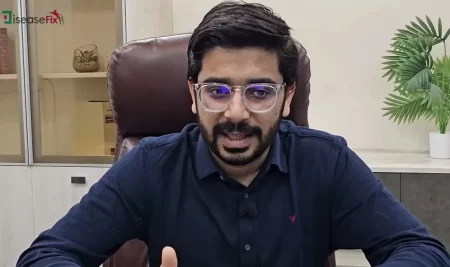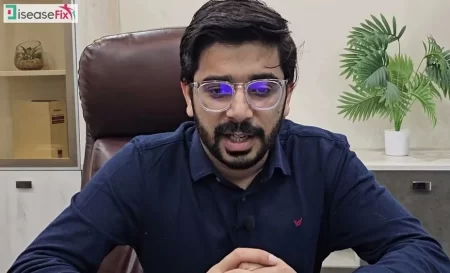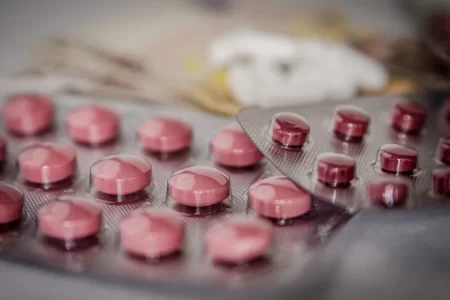How Is Irritable Bowel Syndrome Treated and Managed?
- Updated on: Jun 26, 2024
- 4 min Read
- Published on Apr 19, 2021


How do doctors treat IBS?
The symptoms of irritable bowel syndrome (IBS) are generally managed by making certain changes in your diet and lifestyle. But, in some cases, medicines and psychological treatments may be required.
Though irritable bowel syndrome (IBS) cannot be cured, your doctor will try to manage the symptoms with a combination of various things such as diet, medicines, probiotics, and psychological therapies for mental health problems.
You may be asked to try a few treatments to see what works best for you. He or she may help you prepare the right treatment plan for you and guide you about lifestyle and dietary habits to ensure your symptoms do not worsen.
Which specialties of doctors treat irritable bowel syndrome (IBS)?
A general physician or your family-medicine specialist or a pediatrician (if the patient is a child) may perform the diagnosis of irritable bowel syndrome and provide initial level treatment if the symptoms are mild.
He or she will likely refer you to a gastroenterologist (a specialist in problems of the digestive system) for further treatment.
What is the treatment and management for irritable bowel syndrome?
Dietary changes, lifestyle changes, and exercises are the first level treatments that should be tried to manage the symptoms of IBS.
There are some foods in particular that can trigger the symptoms of your condition. These should be limited or avoided.
If the dietary modifications and lifestyle changes do not treat the symptoms, your doctor may recommend medical treatment and therapies. He may also ask you for more tests to confirm the condition is not something else.
What medications are used to treat diarrhea (IBS-D) in irritable bowel syndrome?
- Antidiarrheal medications such as loperamide (Imodium), attapulgite (Kaopectate), and diphenoxylate and atropine can be given for loose stools
- Rifaximin is an antibiotic that is given for the treatment of irritable bowel syndrome with diarrhea and bloating
- Sometimes, doctors recommend cholestyramine (Prevalite), colestipol (Colestid), or colesevelam (Welchol) to patients
- alosetron (Lotronex) is also used for females
What medications are used to treat constipation in irritable bowel syndrome?
- lubiprostone (Amitiza) – a laxative
- linaclotide (Linzess) – a constipation medicine
- SSRI antidepressants such as fluoxetine (Prozac), citalopram (Celexa), sertraline (Zoloft), paroxetine (Paxil), and escitalopram (Lexapro)
- Over-the-counter available laxatives such as polyethylene glycol (MiraLax), bisacodyl (Dulcolax), and psyllium seed husks (Metamucil) can be recommended
- Prescription laxatives such as lactulose (Constulose)
What medications treat pain and cramping in irritable bowel syndrome (IBS)?
- Antidepressants can be given: amitriptyline (Paregoric), doxepin (Silenor), desipramine (Norpramin), nortriptyline (Pamelor), imipramine (Tofranil). But there are side effects of these medicines and are therefore used only in severe cases.
- Antispasmodics such as metoclopramide (Reglan), dicyclomine (Bentyl), and hyoscyamine (Levsin) can be given for symptoms such as pain and cramping
Is there an IBS diet (foods to avoid, foods to eat)?
Your diet may have a significant effect on the symptom of IBS. You will certainly find certain foods help manage the condition. Avoiding certain foods that can trigger the condition is important in IBS.
You should ask your doctor about which foods to avoid and which foods to eat based on your condition and food intolerance.
Some foods can help in the prevention of symptoms.
Foods you should eat to provide IBS symptom relief
- Water
- Dietary fiber
- Low fat foods
- Whole grains
- Probiotics
- Aloe vera juice helps some people relieve symptoms of IBS
Foods to avoid or limit if you have IBS
- Fat-based foods
- Fried products
- Alcohol
- Caffeine
- Soda
- Foods that are high in sugar
- Artificial sweeteners
- Nuts
- Certain vegetables such as broccoli, cauliflower, cabbage, legumes, beans
- Dairy products such as milk, cheese, (lactose intolerance)
What is a low FODMAP diet?
If you experience frequent bloating, a special diet called the low FODMAP diet can be recommended by your doctor.
FODMAP stands for fermentable oligosaccharides, disaccharides, monosaccharides and polyols. These are carbohydrates that aren’t easily broken down and absorbed by the gutThese foods start to ferment in the gut relatively quickly, and the gases released during this process can lead to bloating.
A low FODMAP diet involves lesser amounts of various foods that are high in FODMAPs.
Psychological treatments
If the IBS symptoms cause problems even after 10-12 months of treatment, your doctor may refer you for a psychological intervention.
There are many different types of psychological therapy. They aim at teaching you techniques to help you control your condition. Evidences suggest that they may help some people with IBS.
Few of these techniques are:
- Psychotherapy
- Cognitive behavioral therapy (CBT)
- Gut-directed Hypnotherapy
- Mindfulness training
- Talk therapy
Reducing the stress
Reducing your stresses may help you reduce the severity of IBS symptoms. Some ways to help you get rid of the stresses are:
- Physical activities such as yoga, pilates, tai chi, meditation
- Exercises such as swimming, walking, running
- Relaxation techniques
Probiotics
Your doctor may recommend probiotics too. Probiotics are live tiny microorganisms that can be seen only with a microscope. These microorganisms (mostly bacteria) are similar to the microorganisms that are present in your normal GI tract.
There are evidences that taking large amounts of probiotics, in particular Bifidobacteria and certain probiotic combinations, can improve your symptoms of IBS.












